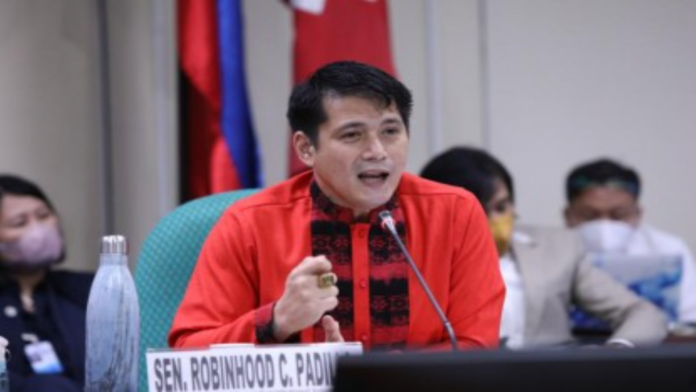Senator Robinhood Padilla has filed a resolution proposing changes to the constitutional terms of elected officials including the President, Vice President, and lawmakers “to ensure a balance between leadership stability and democratic continuity.”
“It is imperative to strike a balance between the need for policy continuity, which requires adequate time for lawmakers to fulfill their legislative agenda, and the need to prevent the accumulation of power, which may lead to political entrenchment,” Padilla said in filing Resolution of Both Houses of Congress No. 5.
He also cited historical data from the Asian Development Bank showing that in the past decade, political instability and frequent turnover of elected officials have been identified as major impediments to long-term planning and policy continuity.
“It is important to provide for an allowable extension of service, thus providing elected officials with a more substantial opportunity to effect long-term, meaningful changes in their respective offices,” he said.
Under the resolution, the President and Vice President shall be elected as “joint candidates” by direct vote of the people for a term of four years.
They shall not be elected for more than two terms. A President who served for two terms shall not be qualified to run for any elective position. Any person who has succeeded the President or Vice President shall only be qualified for one election to the same office at any time.
“The change in the term of office of the President and Vice President will ensure a balance between leadership stability and democratic continuity. A joint candidacy for the President and Vice President provides for an electoral landscape that will shift its emphasis from individual personalities to the unified policy agenda and will foster a more strategic and effective governance,” Padilla said.
RBH 5 also proposes that the Senate shall have 54 members –24 who shall be elected at large and 30 elected by qualified voters from each legislative region.
Senators elected at large shall have terms of eight years, but shall not serve for more than two consecutive terms; senators elected by region shall have terms of four years, but shall not serve for more than three consecutive terms.
Meanwhile, members of the House of Representatives shall be elected for a term of four years, and shall not serve more than three consecutive terms.
The term of office of elective local officials except barangay officials shall be four years. They shall serve no more than three consecutive terms.
“It is important to provide for an allowable extension of service, thus providing elected officials with a more substantial opportunity to effect long-term, meaningful changes in their respective offices,” Padilla said.
He added that synchronizing the electoral cycles of the different branches of government will “improve administrative efficiency, and enable a more coordinated implementation of government policies.” (PNA)


